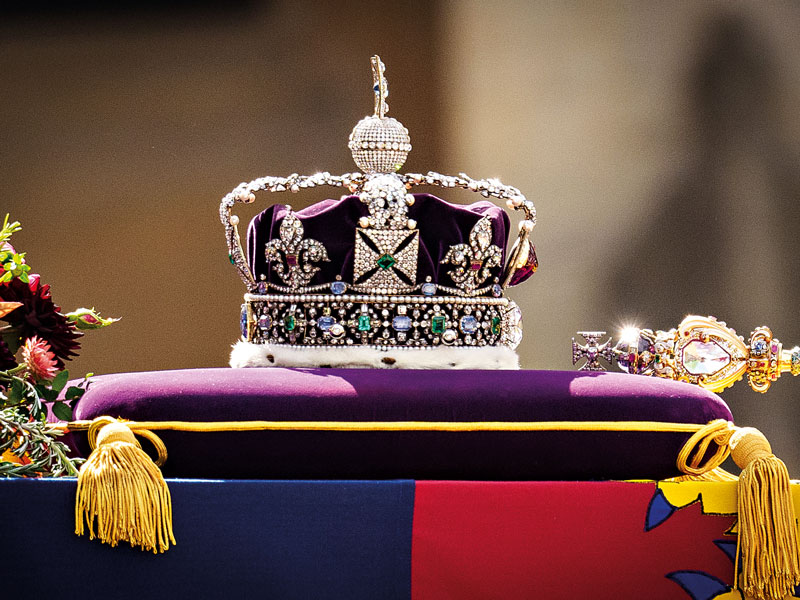
Many millions of people around the world watched at least some of the Queen’s funeral, with figures from the Broadcasters’ Audience Research Board (BARB) estimating over 26 million BBC viewers across the service in the UK alone. The global and streaming audiences would have been many times this amount. The eyes of the world were firmly fixed on the UK in what is thought to have been the biggest television event in history, but once the grandeur and ceremony were concluded, the headlines reverted to ever more desperate reports of fuel poverty, political crisis and economic woe. Summer was officially over and with the incoming chill of the weather, reality soon started to bite.
Almost all the mainstream UK media was sympathetic towards the royal family in the lead-up to the dazzling solemnity that was the state funeral. Regardless of political stripe, any one of us who has lost someone can recognise the pain of going through the motions while stunned with your own grief.
Brexit, Covid, and now the cost of living have all led the left and right to point fingers at each other, and meanwhile the climate is in literal meltdown
But far fewer of us will inherit vast wealth, property, and privilege as a result, and perhaps that’s where the sympathy runs out. The royal family’s finances are as complex as its relationship with the public, and opinions and estimations around these vary wildly. Whether or not you believe that ultimately they contribute more to the economy than they take out, now the country is back to humdrum, can the royals realistically expect to feel genuinely relevant, cushioned as they are from the financial woes facing the average citizen?
Within a week of the Queen’s funeral, the reshuffled Conservative government announced a raft of financial measures in a much-maligned ‘mini budget’ that included the intention to abolish the additional rate of income tax, disproportionately benefitting the highest earners. This in turn sparked days of fierce debate, with then PM Liz Truss and her then Chancellor Kwasi Kwarteng being called to defend the move everywhere from local radio to the Tory party conference.
The plan was eventually dropped just 10 days later, but not before close to 1,000 mortgage products had been withdrawn from the market, and international stock markets had been well and truly spooked.
Disunited Kingdom
At times like these it is hard for households to bear the financial strain of matters that are outside of their control. Spiralling prices of gas and electricity, the geopolitical instability caused by Russia’s war in Ukraine, and global climate breakdown all provide an overarching context that any government would find challenging to thrive in, but when such rash political moves as Kwarteng’s mini budget feel like a choice to make things harder for most, it adds insult to injury and sends a very clear message about Britain’s crumbling sense of unity. In the meantime, the new coin featuring Charles III’s face was unveiled, but otherwise, all was quiet from the palace, even beyond its extended period of private mourning.
Whether you lean in favour of the royal family or not, it is important to acknowledge the magnitude of the Queen’s passing. She was a constant, for good or ill, in a country that feels increasingly polarised with every passing crisis. Brexit, Covid, and now the cost of living have all led the left and right to point fingers at each other, and meanwhile the climate is in literal meltdown. At times like these, no wonder almost half the UK population tuned in to bid farewell to one of the world’s longest serving figureheads, and yes, perhaps for a little distraction as well. Like it or not, we will all remember where we were when we heard the news, however we felt upon hearing it.
The well-worn argument of the royal family being good for UK tourism (not to mention the media) may not hold much water if Charles III does as he is rumoured to want to do and slims down the operation, reducing the number of senior working royals who enthral the visitors and capture the imagination. Although no longer able to lean on parliament the way he has purportedly done while heir to the throne, it is well known that King Charles is extremely concerned about climate change.
Perhaps he could be the figurehead that presses forward with Britain’s environmental imperative. There’s something we can surely all unite behind.


